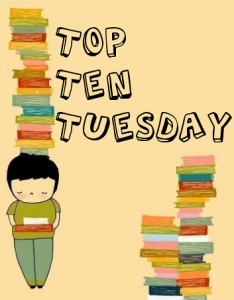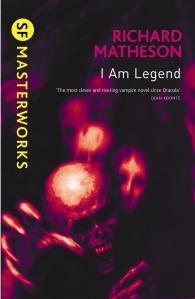TTT: If You Like Horror
29 September 2015 2 Comments
 This week has been the first topic in a good long while that has actually appealed to me. However, that didn’t make it easy. In fact, this was pretty difficult. I don’t think I read enough “super popular books” to have a base to recommend from. Nor do read enough in any genre to really have enough books to recommend. Well, with the exception of maybe one…
This week has been the first topic in a good long while that has actually appealed to me. However, that didn’t make it easy. In fact, this was pretty difficult. I don’t think I read enough “super popular books” to have a base to recommend from. Nor do read enough in any genre to really have enough books to recommend. Well, with the exception of maybe one…
Lo, I present to you my top ten books to read if you like “super popular author” Stephen King, or the horror genre in general. There is a range of horror represented here, but all kinds of horror Stephen King has dabbled in (because really, what type of horror hasn’t he dabbled in?)
The Haunting of Hill House – A classic haunted house horror story with a psychological twist. This is possibly my very favourite horror novel, ever.
Haunted – Erring on the graphic line of the horror genre, but being no less creepy for it.
I Am Legend – Science fiction meets creature feature. The true horror in this book is its tense psychological terror.
Apartment 16 – Very reminiscent of Stephen King, generally. Demons and ghosts and creepy happening in this flat.
Prince of Thorns – A true horror in that this book deals with violent murder, rape and war in a post-apocalyptic Middle Age-like setting.
Pandaemonium – More of a horror comedy, i’m sure Christopher Brookmyre doesn’t know how to make his readers not laugh, even in the midst of, well, pandemonium.
The Midwich Cuckoos – Everyone in a small town falls asleep, during which time all the women become pregnant. Creepy horror at its very best.
Tiny Deaths – This as a book of short stories, all written around the theme of death. Some are more horrifying than others, but what’s more horrifying than facing your own mortality?
Party Monster – Is outrageous horror a thing? This book makes it a thing. Sex, drugs, murder and dismemberment with the Club Kids!
Florence and Giles – Starting off as a quiet and unassuming creepy house horror, this book evolves into something supernatural before dealing an altogether different twist.
 This was pretty hard, actually. I wanted to choose books that were good books, but hard to read because of the subject matter. Apparently… I haven’t read many of them. I wonder if that’s a reflection on me as a reader, or the books i choose to read.
This was pretty hard, actually. I wanted to choose books that were good books, but hard to read because of the subject matter. Apparently… I haven’t read many of them. I wonder if that’s a reflection on me as a reader, or the books i choose to read.















